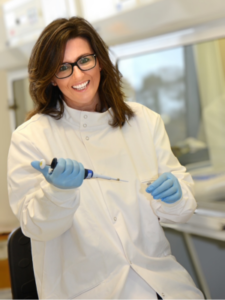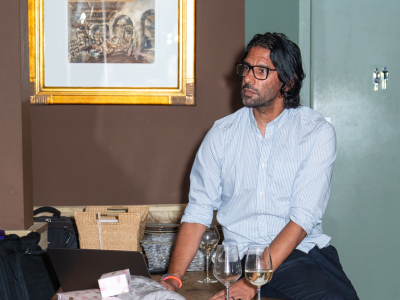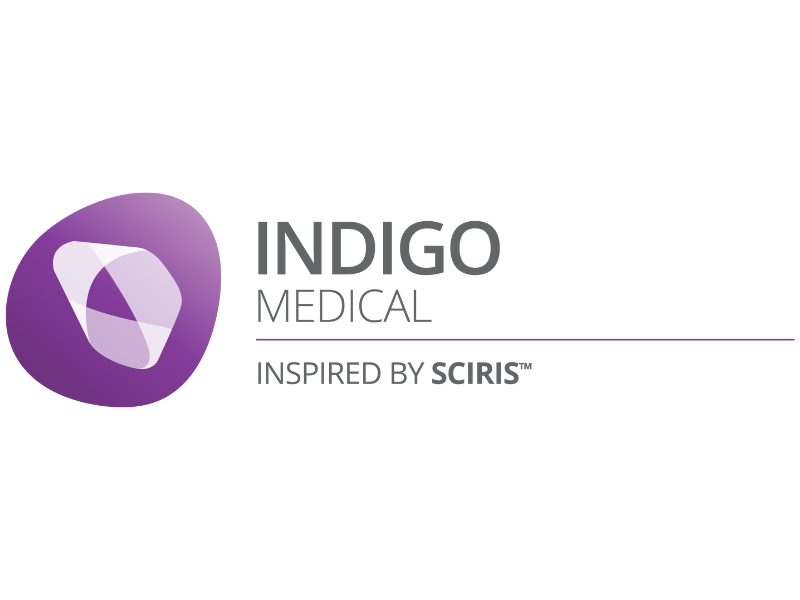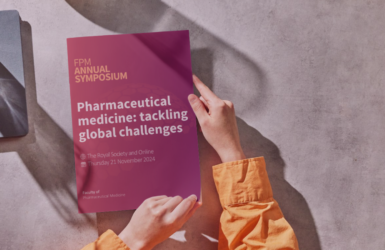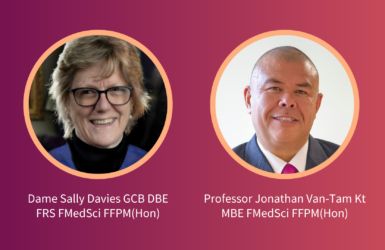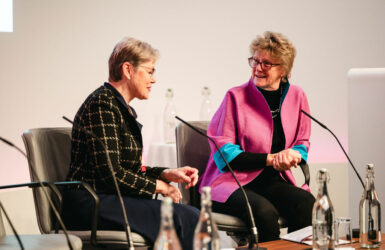Insights from the FPM Annual Symposium 2024
Posted on: Friday 6 December 2024
Author: FPM
The FPM Annual Symposium 2024 was held at the Royal Society on Thursday 21 November 2024. Themed Pharmaceutical medicine: tackling global challenges, the day united a whole range of different healthcare professionals from across the globe and life sciences community.
The event covered diverse topics, from antimicrobial resistance to AI, precision medicine, and patient engagement. We had a stellar line-up of speakers, including Dame Sally Davies, Professor Jonathan Van-Tam Kt, Professor Rory Collins Kt and many more.
Four attendees have offered their personal reflections and key takeaways from an fantastic day.

Want to relive the event?
Take a look at the official photos
Dr Stuart Dollow FFPM from the Working Group
After general medicine and general practice training, I joined industry with Roche in Clinical Development and Medical Affairs. I then moved to GlaxoWellcome / GSK, holding various global clinical roles in the UK and US before becoming UK Medical Director. I moved to Norgine as Chief Development Officer, thereafter joining Takeda as Head of Development for Europe and the Americas. Subsequently I was Head of Global Clinical Development and Medical Affairs for UCB, and now run Vermilion Life Sciences, a clinical development consultancy. I have held Board roles at the Human Tissue Authority, the Faculty of Pharmaceutical Medicine and Chaired the Advisory Committee on Clinical Impact Awards for DHSC. I am also an Independent Assessor for living organ donations and transplants.
Could you briefly describe your role within the working group?
As part of the working group defining the overall theme of the Symposium and the breakout streams, we were privileged to be able to shape the day based on feedback from the 2023 Symposium, together with what we believed were contemporary topics that would highlight the global reach of our specialty. We particularly wanted to make the day as interactive as possible; engaging the audience in discussing global health challenges and areas where innovation, including pharmaceutical medicine innovations, could make a difference. We wanted interactive sessions to enthuse and inspire the audience to make changes in their everyday work to address the challenges, as well as use the feedback to identify the next steps for the Faculty’s strategy.
What was the most rewarding part of helping to organise your session?
I really enjoyed working with the team. We all had very different backgrounds and experiences allowing us to work well together and bounce complementary ideas around to refine the overall symposium theme as well as the themes in each stream and session. We agreed on the streams we wanted to lead, and we supported each other in suggesting potential speakers for the keynotes, plenaries, deep dive sessions and workshops to design thought-provoking talks and open questions for interactive workshops. Identifying and working with the speakers who would be in the sessions I was chairing was especially rewarding. Discussing the themes with experts in their fields brought a richness to these topics, helping me understand the scale of the global challenges as well as the current state of the science. This allowed us to collectively shape the sessions and ensure they were likely to be thought-provoking and interactive. I was pleased to see in the sessions I chaired how engaged the audience were, asking smart and probing questions and helping us define the next steps to address these challenges.
Were there any moments during the symposium that stood out to you as especially impactful or memorable?
Chairing two sessions made the day something of a whirlwind for me, although it was incredibly energising and gratifying to have the audience participate so actively in those sessions. There were no awkward silences or disengaged aspects where I had to fill in to direct the session as a chair. When you design a meeting, it is all too easy to fall into the trap of designing it based only on your preferences. However, this Symposium was open to both members and non-members, and it was fantastic to see how much the audience felt a part of the meeting and wanted to speak and shape the outcome. They were far from a typical Symposium audience; instead of retreating to their phones, they were eager to participate and far from passive observers.
Did you have a favourite session, speaker, or topic that particularly resonated with you?
I always enjoy hearing Dame Sally Davies speak. She is simultaneously self deprecating, amusing and thought provoking. She makes me realise every time I hear her, what the scale of the task is, how we need to change our way of thinking and acting, and how we can all make a difference. She is not afraid to tell us when we may be part of the problem but also how much we can do to be part of the solution. It reminds me to hold a mirror to ourselves and consider changing our behaviours to we can make a difference. That, I find inspiring.
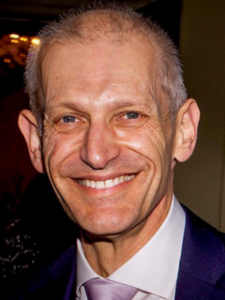
Dr David Montgomery FFPM an FPM Member
My name is David Montgomery and I’m the UK medical director for Ipsen. I’ve been in the pharmaceutical industry since 2008 and a Fellow of FPM since 2014. I started my career in surgery before moving to industry, and I’ve been really lucky to have had an incredibly rewarding and varied career. I’ve worked in medical affairs in UK and global roles for four companies in that time, and also spent 18 months at Prostate Cancer UK as head of research. The thing that really gets me up in the morning is healthcare policy; helping shape the environment to ensure patients get the best possible care. I’ve recently joined FPM’s Policy and Communications Group and I’m really looking forward to working again with FPM in support of their mission to advance the science and practice of pharmaceutical medicine.
Why did you decide to attend this year’s FPM Annual Symposium?
I attended this year’s symposium primarily to catch up with colleagues. We don’t get many opportunities throughout the year as members and Fellows of FPM to come together as a group and just spend a bit of time together talking about what’s going on in the industry and the healthcare systems in which we work. Although of course when you catch up with old friends you do stray onto other topics!
I have, over the years, been very committed to the work of FPM and have sat on committees in the past, as well as currently teaching on the DPM Training course. For me, the symposium was a brilliant opportunity for me to meet some of the other members of my new Policy and Communications Group face-to-face for the first time, as well as to meet some of the newer staff members from FPM.
What was your favourite session?
There were a number of really good sessions this year. My only grumble about the symposium is that the parallel tracks mean you can’t see all the amazing speakers and I find myself having to make difficult decisions about what I want to see. That said, of course, there is a wrap up summary at the end of the day where the outputs of the parallel sessions are discussed.
I found the discussion on healthcare innovation and the use of AI really helpful; there is a lot of discussion on this topic currently and I still feel we are playing on the edges of what’s possible. I’m excited to see whether by next year we will have some really game changing cases to discuss. But overall the plenaries from Dame Sally Davies and Professor Jonathan Van Tam at either end of the day were really thought provoking and it’s a privilege to have an event with such high caliber speakers.
Did you have the chance to connect with peers or industry professionals?
One of the main reasons I attend the FPM Annual Symposium is to connect with old friends and to meet new people. I don’t want to keep harping on about it, but we did lose a lot of opportunities to do that over the past few years. With every event that passes there are fewer and fewer people that I meet whom I haven’t seen for four or five years. But amazingly there are still some!
There has been a lot of change this year; politically, in our healthcare systems and in the industry and it was really helpful for me to have discussions with colleagues from across the industry on how they are adapting to that change, and how they are feeling about it.
Finally, I got a few questions from industry professionals who were thinking about doing the DPM or PMST. It was a real privilege to be able to talk through with them how I’d found the programme all those years ago and talk through the pros and cons. So overall I think there were lots of really useful conversations being had!
Would you recommend this event to other professionals in your field, and why?
I would absolutely recommend this event. The quality of the agenda is always high, the event is well attended by people with a tremendous variety of backgrounds and expertise and it’s a lovely open forum, especially the workshops, meaning that it’s possible to have really meaningful discussions throughout the day in lots of different fora with both delegates and speakers. FPM is one of the few industry-wide bodies that can serve a role to bring members of the community together and allow us to discuss, and hopefully solve, some of our mutual challenges. It’s one of my events of the year!
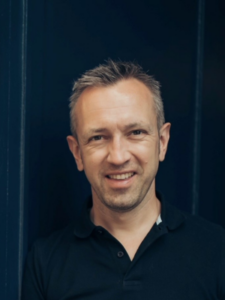
Sharaz Luke from Indigo Medical (silver partner)
Hi, my name is Sharaz. I manage communications at Indigo Medical and represent our two core services of: Medical Communications and Outsourced Compliance solutions. Indigo Medical is based in Milton Keynes and London, and in total we have 55 full-time employees.
Sponsoring FPM events
It’s worth noting that Indigo doesn’t sponsor any other events, other than with FPM. Why is that? In simple terms, we only like to work with people that are easy to work with. That seems obvious, but sponsoring / exhibiting can be quite a stressful experience.
From the get-go, the FPM team make the process as easy as 1-2-3:
- List out requirements for exhibiting, with timelines (sent months in advance of the date)
- FPM enables multiple opportunities for sponsor awareness: video testimonies, social announcements, and branding placement on meeting collateral (print, web, slides).
- On-the-day: lots of space for exhibition stands, conversations and importantly, actual networking time factored into the agenda.
What did you gain from exhibiting?
The Annual Symposium is always well attended, with a great mixture of medical professionals in a variety of positions.
This is perfect for Indigo as we get a chance to talk to professionals that need MedComms support (e.g. organising medical symposia, advisory boards, designing disease awareness presentations) as well as outsourced Compliance services (technical accuracy review and final certification services). On any given event, we normally get a handful of leads to follow up with.
The networking area is also very welcoming. We often have great conversations with people during coffee and lunch breaks, including our Fellow co-sponsors and exhibitors. Having access to both the main plenary room as well as breakout conversations is also really nice, as ultimately the agenda topics are always super pertinent to our industry and the speakers are knowledgeable on the subject matter.
In short: FPM always run great, impactful events, that look to advance medicine and connect generations of medical professionals. And whenever we can, Indigo Medical will try to support and sponsor FPM events – which seem to go from strength to strength.
Dr Susan Armstrong, a non-member
I am the Veterinary Director of the Veterinary Health Innovation Engine, a strategic partnership between academia (University of Surrey) and pharma (Zoetis). I am also a Senior Lecturer in Veterinary Clinical Research and an equine veterinary surgeon. I have worked across industry (pharma), a contract research organisation and clinical practice. Among several Honorary positions held by me, I am a Fellow of the Royal Society for Medicine and Honorary Secretary of the Comparative Medicine section, focused on One Health.
What brought you to the symposium?
I have attended the FPM Annual Symposia for the last three years, having been introduced to FPM by a Stonier Prize recipient. The FPM Annual Symposia have particular relevance to my role which is centred around meeting unmet diagnostic and therapeutic needs by undertaking transformative research. My teams and I take a cross-disciplinary, comparative, and translational approach to developing better therapeutics and diagnostics for clinicians and the animals we treat.
The FPM Annual Symposium is a wonderful opportunity to look at the bigger picture of what is happening in human health, as well as how we can “lift and shift” to veterinary medicine. Crucially our veterinary patients, particularly dogs, are also excellent models of naturally occurring disease for so many human conditions, including chronic renal disease, muscular dystrophy, Alzheimer’s, and many cancers. Consequently, the knowledge exchange between human and veterinary medicine is much more symbiotic now, and of course One Health holds us all together. The FPM Annual Symposium is a wonderful opportunity to discuss these approaches with like-minded delegates and I can take back all the learning to our strategic partners and academic colleagues to help shape our horizon scanning and implementation.
What was your favourite session?
Genuinely, I enjoyed and took something of value from every session. The plenaries were as exceptional as expected. From the perspective of understanding where we are aligned in veterinary medicine in relation to the issues and benefits surrounding AI and its implementation, the morning break out session was very useful. However, Dr Nadia Godin-Heymann’s session on precision medicine was of most value to me in my role as Veterinary Director of vHive.
Did you have the chance to connect with peers or industry professionals?
It never fails to enthuse me when I engage in discussions with pharmaceutical physicians at the FPM Annual Symposium. Highlighting the many similarities between naturally occurring diseases in dogs and humans always stimulates interesting debate. As does highlighting that although veterinary markets may be smaller, routes to market are far faster and the barriers and benefits to knowledge advancement are less constricted in veterinary medicine, but could be so beneficial to human health.
How would you describe the overall impact and significance of this event in your field?
This years FPM Annual Symposium was no exception to the insight and significance for the Veterinary Health Innovation Engine and the work I do with Prof Tony Whetton, Prof Nophar Geifman and the rest of our brilliant clinicians and academics at the University of Surrey. Every year there is something at the symposium that helps shape our strategic thinking whether it is AI or precision veterinary medicine. It was also abundantly apparent from Prof Sir Jonathan Van-Tam’s talk highlighting the spread of Influenza in American cattle, and Dame Sally Davies discussion on AMR, our need for cross-disciplinary joined up thinking has never been greater and synergy across our disciplines is still unrecognised and underutilised.
